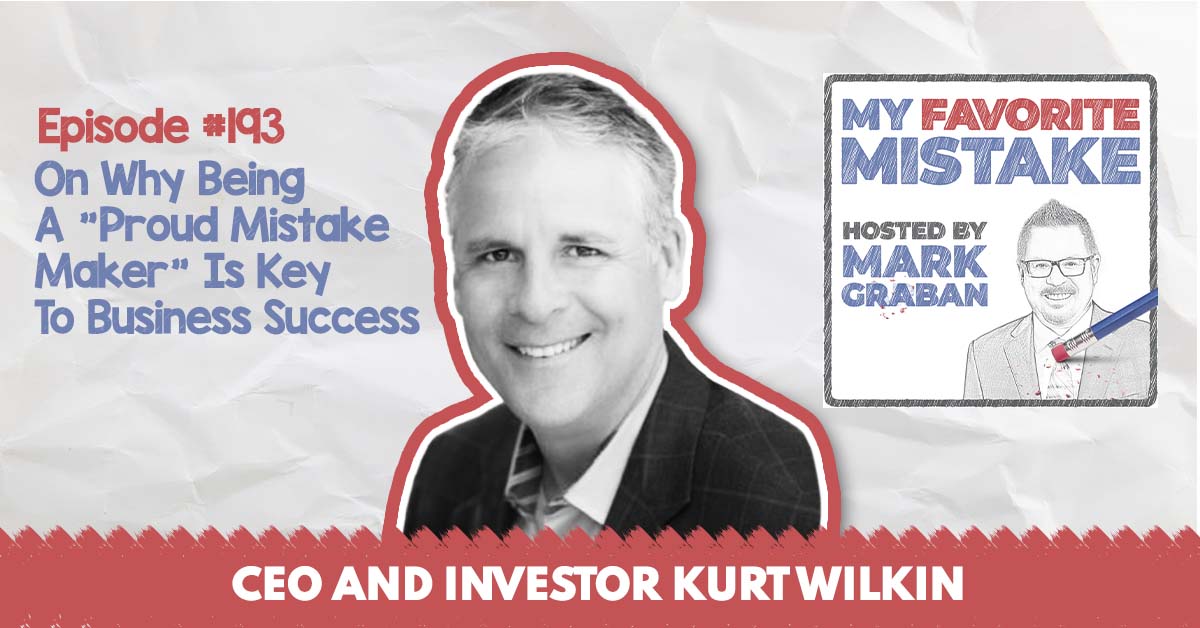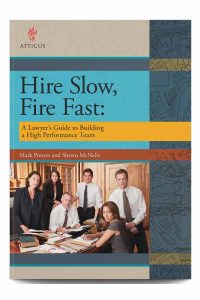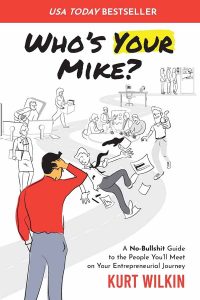Listen:
Check out all episodes on the My Favorite Mistake main page.
My guest for Episode #193 of the My Favorite Mistake podcast is Kurt Wilkin, a co-founder and CEO of HireBetter and managing partner of Bee Cave Capital. His bio says he's “coach, mentor, entrepreneur… and proud mistake-maker.”
Prior to founding HireBetter, Kurt founded and led The Controller Group (TCG), a professional services firm focused on accounting, technology and recruiting, which was acquired by Tatum in 2006.
He’s the author of a new book, Who's Your Mike?: A No-Bullshit Guide to the People You'll Meet on Your Entrepreneurial Journey. You can learn more at WhosYourMike.com.
His quiz that he mentioned in the episode: WHOSYOURMIKE.COM/QUIZ
In this episode, Kurt tells his favorite mistake story about not having a complementary “execution partner” to help him run a business. How (and why) did he adjust? Why did he step aside from the CEO role and what did he learn from this entire experience that serves him well today?
Questions and Topics:
- What does it mean to you to be a “proud mistake maker”??”
- How do you try to create a culture where people can also be proud mistake makers? Leading by example?
- Investing in people who are humble enough to learn…
- Learning from mistakes vs. avoiding company-killing mistakes?
- You’ve said that you saw your dad struggle as an entrepreneur. Were you able to learn from any of his mistakes?
- You joined a failed startup in the dot-com bubble… any lessons learned from that?
- Mistake to try to swing for the fences vs. lifestyle cashflow positive business
- TELL US ABOUT THE BOOK: A business book for people who hate business books?
Find Kurt on Social Media:
Watch the Full Episode:
Quotes:
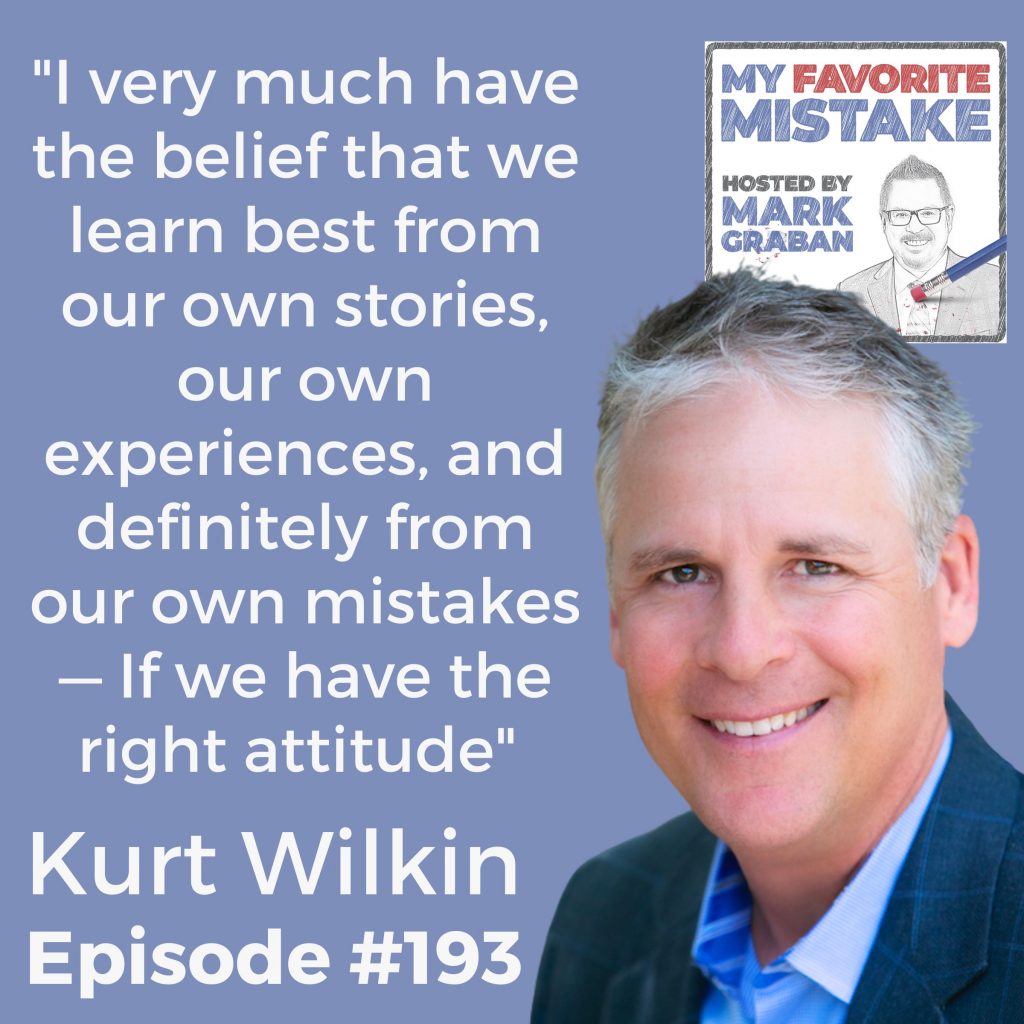
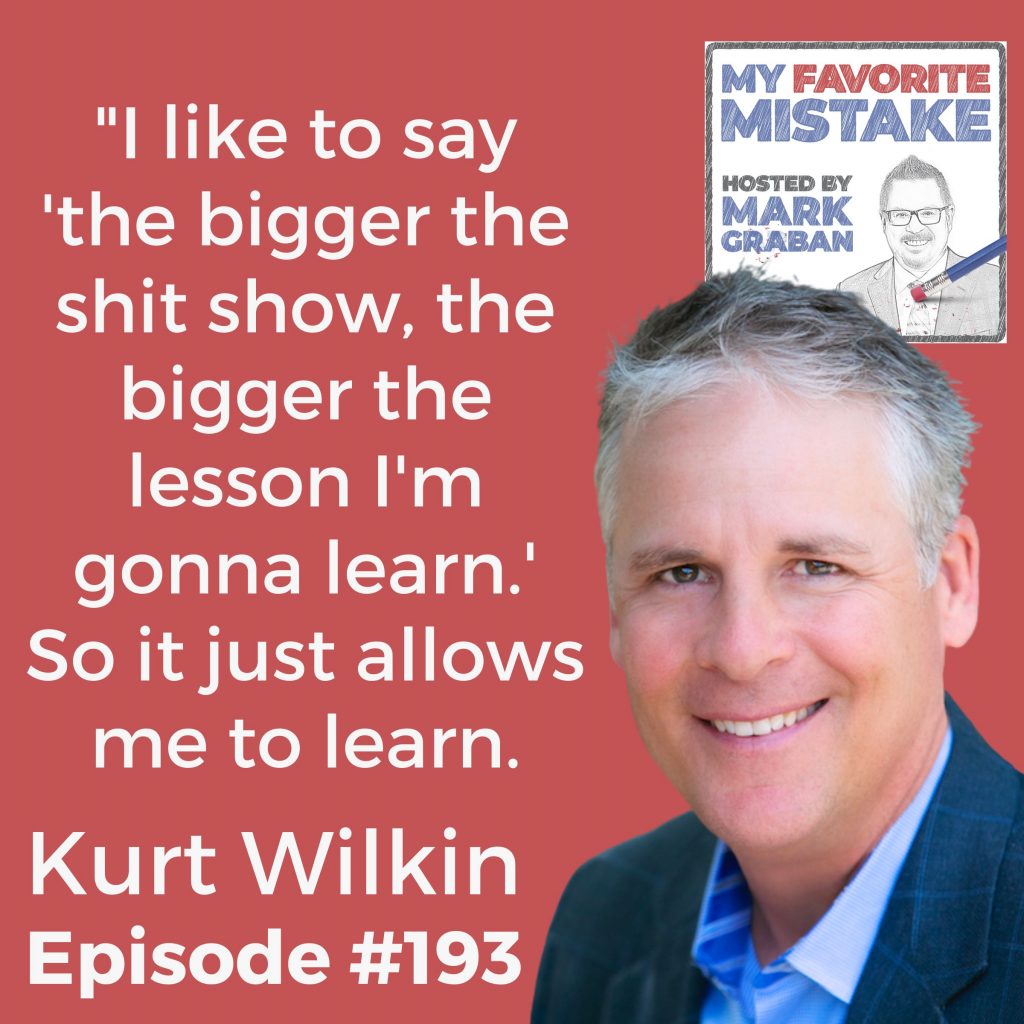
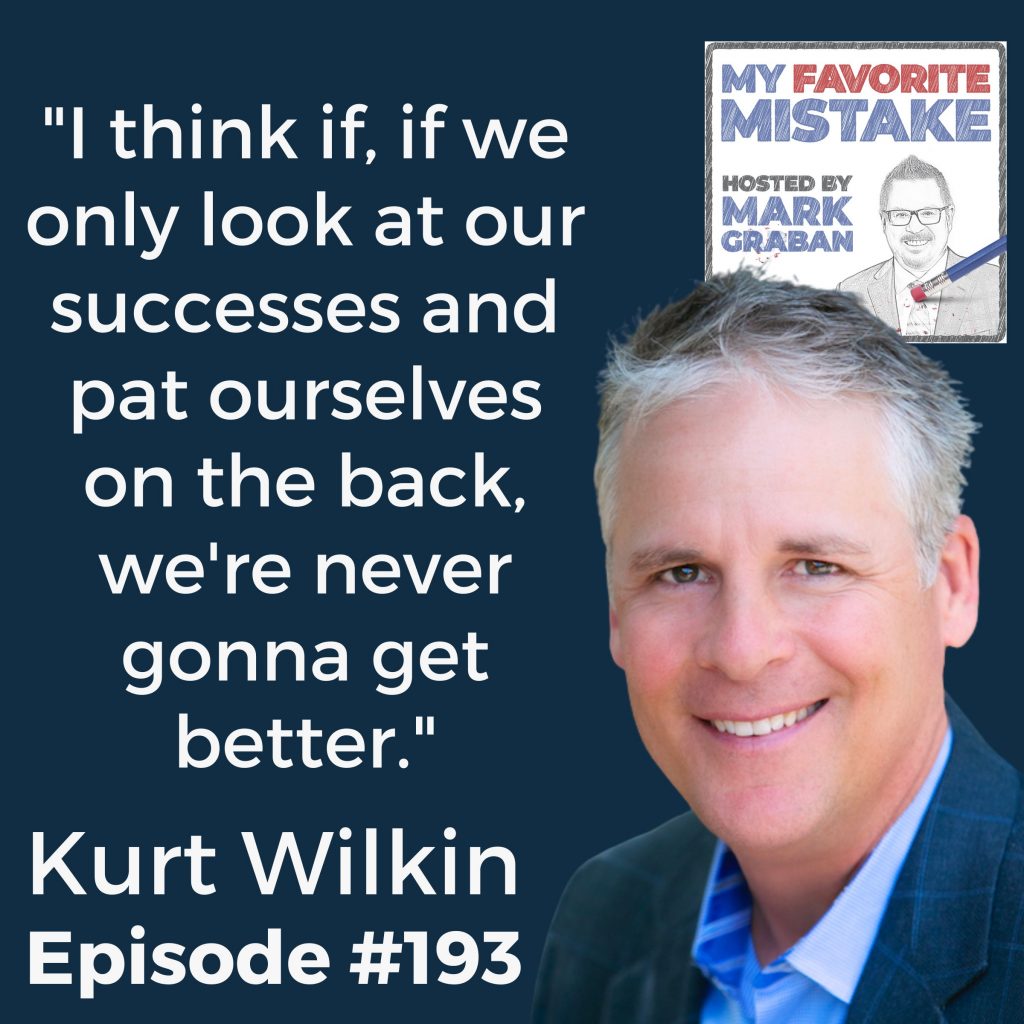
Subscribe, Follow, Support, Rate, and Review!
Please follow, rate, and review via Apple Podcasts or Podchaser or your favorite app — that helps others find this content and you'll be sure to get future episodes as they are released weekly. You can also become a financial supporter of the show through Anchor.fm.
You can now sign up to get new episodes via email, to make sure you don't miss an episode.
This podcast is part of the Lean Communicators network.

Other Ways to Subscribe or Follow — Apps & Email
CEO And Investor Kurt Wilkin On Why Being A “Proud Mistake Maker” Is Key To Business Success
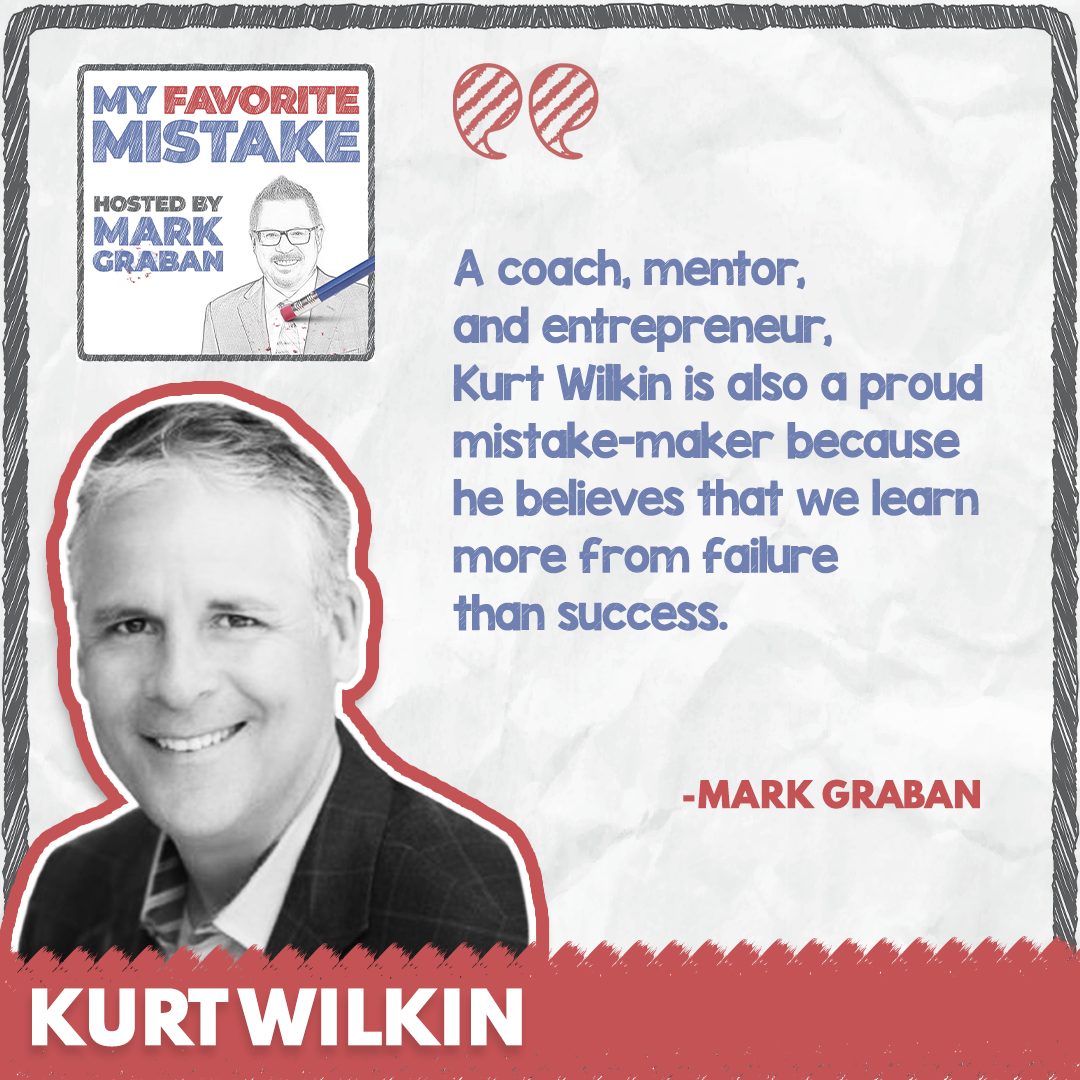
Our guest for this episode is Kurt Wilkin. He is a Cofounder and CEO of the company HireBetter and the Managing Partner of Bee Cave Capital. Prior to founding HireBetter, Kurt founded and led The Controller Group or TCG, a professional services firm that focused on accounting, technology, and recruiting. It was acquired in 2006. He's the author of a book titled, Who's Your Mike?: A No-Bullshit Guide to the People You'll Meet on Your Entrepreneurial Journey. You can learn more at HireBetter.com or KurtWilkin.com. Kurt, welcome to the show. How are you?
I'm doing great. Thanks for having me. I love what you're doing to highlight mistakes and learn from them.
Thank you for that. I'm looking forward. It's going to be a no-BS conversation. Kurt's bio describes him as a coach, mentor, entrepreneur, and proud mistake-maker. You're in the right place.
You are talking about mistakes. I’m in the right place. Thanks. I feel like I'm in my second home.
I'm happy you're here. I look forward to talking about your book and other things from your career. As we normally do here, proud mistake-maker, what would you say is your favorite mistake?
With The Controller Group that you described, I had a partner. He was the guy that got stuff done, my execution partner. I was the idea guy, maybe a decent sales biz dev guy. We had a great run. It was a successful exit. When I bought HireBetter, I didn't quite appreciate how much Brett brought to the table and how much I needed that execution partner. My biggest mistake is trying to do this without an operating partner. I spent five years beating my head against the wall until I finally realized what I was missing. I went out and found one.
There's a lot to dig into. I appreciate you sharing the mistake. Before this ties into how you come around to realizing the mistake, and I know you said it took five years, looking back at it now, what were some of the things that were going wrong or not happening without that execution partner?
I'm very open and honest about this in my book. We were growing rapidly at HireBetter, growing 30% or so per year, which is pretty good for a services firm, but we weren't profitable. I kept telling myself, “We're scaling. We're building for the future,” and all this crap that. I'm not a very good manager of people or details. I kept telling myself the story that we were spending money as investments and we were pissing away a lot of money. That was one.
We see that a lot with our clients. If you reach some sort of plateau or if you realize you're not profitable, or maybe you could be much more profitable, those are generally symptoms. The other was I had a list of 1 mile-long projects I wanted to do, “Why don't we do this? We need to start implementing this.” I made it like a five-year-old soccer team where you chase the ball and no true team. It was bad leadership on my part and maybe bad followership on their part. I'm not sure. Maybe they were good followers because they do what I asked them to.
I'd like to hear a little bit more of the context. When you talk about buying the company, was a founder still involved? I'm curious to know some of the dynamics of that transition.
I founded The Controller Group which partnered with Brett Lawson and Kathy Schrock. When I left there, I was looking for what I wanted to do next. The short story is I tried to buy a couple of companies that were more tech-focused and not people focused. I was tired of dealing with people. People suck. I wanted to find something that wasn't focused on people. I realized at the end of the day, I'm not a tech guy. I stumbled upon HireBetter. It was a recruiting firm.
They did things differently. I think the recruiting industry's broken. It was a very small firm at the time. There was a founder involved. I was going to buy it and put one of my former employees in charge. I was going to be a Chairman or passive investor. After about 6 or 9 months, I realized that the founder was as great and smart as he was. He was unemployable. We parted ways. I dug in, and five years later, I look up. I'm like, “I was supposed to be a passive investor.”
You not only survived. You say you were growing. As this realization of the mistake or what was lacking sunk in, was it a gradual recognition? Was there a big a-ha moment? Either way, how did you adjust? Did you bring in that kind of person?
I probably had a solid operating partner all along, but she didn't push back against me as much as she needed to, which I think your operating partner needs to. If I disagreed with her, even if I was super friendly about it, she would go along with it. With Brett, we fought a lot, but we always came up with the right answer no matter what the right answer was. It was gradual. In the first 3 or 4 years, you're like, “I’m paying myself nothing. Credit card bills going up,” and the story I kept telling myself is, “We're investing for the future.”
I looked up and realized, “We're not building something for scale. We're not building systems, processes, and structure.” We're fighting fires. That's probably the a-ha. I was like, “My credit card debt is through the roof. I'm not making any money. I'm busting my ass.” As I say in the book, “I had built a lifestyle business for everybody but me.” That's a quote from a good friend who came in, dug in, and tried to help us understand what our challenges were.
You mentioned the woman who was working with you here as an operating partner. Were you able to work with her so she could adjust? If she would come on and say her favorite mistake was not pushing that hard enough on, was there a matter of making an adjustment or bringing in somebody different?
Knowing then what I know now, we would've been able to adjust. At the time, neither one of us understood what was going on. Later, I read Rocket Fuel by Mark Winters and Gino Wickman. If you've read that book, it's a great book about the difference between the visionary and what they call an integrator. If I'd read that before, it would've been eye-opening, and maybe we could have made some changes. She had a chance to go back and run her family business. It was an opportunity of a lifetime. I certainly wouldn't have wanted to go in the way of that. It worked out best for all involved at the end of the day, and it allowed me to find the right longer-term operating partner.
How much longer has that person been in place? Is that playing out the way you would've wanted?
It’s great that you asked because we've talked about favorite mistakes. Let's talk about this a little bit deeper. I'll share what I can. Long story short, we were wasting money. We were inefficient, then we brought in an operating partner who came in, and she was a great turnaround person. She cut costs and right-sized the team. We raised prices to be where we needed to be. We were very profitable for a couple of years under her guidance.
What I learned was she wasn't a growth partner. She was a turnaround partner. There's a different person for every season. I learned that she was great for that, but she wasn't great for growth. We ended up parting ways. I'm excited and happy that we worked together because she saved our bacon. I brought in a friend from YPO who came in and did a great job on the growth side. He had some health challenges. He decided to step away. A few years ago, I brought in Cisco Sacasa. I liked him so much that I made him my CEO. I've stepped aside from the CEO role, which has been great for me to go do what I enjoy doing and love to do, and not run a company. That's not my bag.
One of our themes here is embracing learning from mistakes to not beat someone up for making mistakes, but to acknowledge them. I want to come back to that phrase you use of being a proud mistake-maker. I was wondering if you could elaborate on that. That phrase means something to me, but I want to know what it means to you.
I very much have the belief that we learn best from our own stories, experiences, and mistakes if we have the right attitude. The bigger the crapshow, the bigger the lesson I'm going to learn. It allows me to learn. I've tried to make that into a calling card, both for myself and this book. This book is a series of stories from other people. Hopefully, you can learn from their mistakes and their stories.
[bctt tweet=”We learn best from our own stories, our own experiences, and definitely from our own mistakes—if we have the right attitude.” via=”no”]
If we only look at our successes and pat ourselves on the back, we're never going to get better. I'm a lifelong learner. I want to learn. A couple of years ago, I learned that the more I embrace my mistakes, the more authentic I become to myself and others. I try to tell people, “We all make mistakes.” Your readers aren't sitting there and thinking, “Kurt and Mark are perfect.” We're flawed. It's ridiculous. I want everybody to know that they're flawed and that's okay. It's not the mistake we make. It's what we learn from it.
[bctt tweet=”If we only look at our successes and pat ourselves on the back, we’re never going to get better.” via=”no”]
I'm curious within HireBetter or previous companies that you were involved in, do you think being a proud mistake-maker is part of that to set an example for others? Do you want to create a culture, a team of proud mistake-makers? Tell us more about that.
We're an entrepreneurial company, and many of your readers probably are too. If you don't make mistakes, you're not trying. You're not growing. If there's anything I could impart to my team and your team, it is to try, make a mistake, learn from it, and move on. If you don't make mistakes, you're not entrepreneurial enough. You're too safe. If you don't learn from your mistakes, then we got a bigger problem. I want you to make mistakes. I want you to learn from it. I want us all to acknowledge to not hide from mistakes. If you hide from number mistakes and you're a coward.
[bctt tweet=”If you don’t make mistakes, you’re not trying or growing. Try to make a mistake, learn from it, and move on. If you don’t make mistakes, you’re not entrepreneurial enough. You’re too safe. And if you don’t learn from your mistakes, we’ve got a bigger problem.” via=”no”]
I'm curious about your role with Bee Cave Capital. How does that mindset that you have affected decisions on either making an investment or how you are involved in coaching or mentoring a company you've invested in? Are you looking for companies where, as you put it, there's a bit of a crap show? Is that an investment opportunity to an extent?
I invest in people. If people are humble enough to recognize their mistakes and be a learner, that's one thing. If it is a crap show, which some of them can be, I try to avoid them because that means that sometimes it's too hard. If a founder is tight, too proud of themselves, or they're the smartest person in the room, no thanks. I want to be around people who are willing to make both make mistakes, but then also accept that they do make mistakes.
It sounds like there's a matter of degree. I'm curious to know your thoughts on the idea of there are small and early mistakes that you can learn from and build upon. Here's what I would propose. The idea that we're going to learn from mistakes and embrace that doesn't mean we can do any wild, irresponsible, and stupid thing, “I'll learn from it.” How do you find the balance between embracing and celebrating relatively small learning experience mistakes versus looking to avoid a mistake that tanks a company?
I'm not sitting here saying, “Everybody makes mistakes,” all day long. That's not what I'm saying at all. Let me tell you what I tell my boys. I've got three boys. I say to them, “I want you to make mistakes. I'm here to help you make mistakes, but I'm also here to help you not make life-altering mistakes.” That's what you're talking about.
[bctt tweet=”The bigger the shitshow, the bigger the lesson I’m going to learn. So it just allows me to learn.” via=”no”]
Those are things like getting somebody pregnant or getting in a car with a drunk driver, things that are going to change your life in a negative way. Those are the mistakes to avoid. It’s the same thing with your team. If it's a matter of saying yes to a 10% discount to a client all day long, “If we don't like it, we'll talk to you later.” To hide something from a client or us is a big mistake.
Before we talk about the book, two other things stood out to me from your bio when you talk about learning from other people's mistakes or learning from mistakes. You talk about seeing your dad's struggle as an entrepreneur first off, and then you talk about what turned out to be a failed startup in the dot-com bubble. In observing your dad and living through that in a way, how did that influence your view on mistakes or help you as an entrepreneur and investor?
I may have interesting stories for both. Let me start with my dad. My dad was probably the smartest person I know, but my dad was very cheap. He wanted to do everything himself. The mistake that he made was not having an operating partner like I've talked about or being not proud enough to delegate some of those other tasks to people who are better than him, and frankly, a lot cheaper than him. He struggled. It's hard to be a one-man entrepreneur if you're not delegating anything. I don't think I learned that until much later in life. Now that I put 2 and 2 together, that's definitely a lesson learned. The biggest lesson there was it was dot-com heyday, the late 1990s and early 2000s.
[bctt tweet=”The more I embrace my mistakes, the more authentic I become to myself and to others.” via=”no”]
We're selling on the internet or eCommerce licensed sports products like koozies, hats, and t-shirts or whatever for football and baseball teams. We raised $5 million on the back of a napkin. We launched and knew we needed to raise money in the late 2000s or something like that. I was not on the board, but the finance guy sitting around the board meetings. We needed to raise money.
All the board members were like, “No, we're not going to raise money until we're $100 million valuation. “There was one board member who says, “If we can raise money now on a $20 million valuation, let's do it because you never know when this thing's going to dry up.” Everyone, “These things are going on fire. We're going to $100 million.” The bubble burst, and we ran out of money. We couldn't raise money. A lesson learned is that you never know what tomorrow's going to look like.

It seems like this question of spending money to invest in the future versus trying to become cashflow positive, or at least break even. I'm curious how you think through this big decision for a startup or a company that is still growing quickly. How do you think through this question of swinging for the fences, as some people might put it, versus saying, “We're stable and we can fund our growth, but we might be growing smaller?” It could be a mistake one way or another.
That's the choice of the founders and the investors. What I mean by that is there are times when I work 20-hour days for 2 weeks straight, where I'm like, “Why don't I make a lifestyle business, make this a cash cow, and live happily ever after?” I see people doing that. On the one hand, I'm envious of them. On the other hand, I wonder what they could do if they did the other. We made the choice to grow as fast as we could, build it, and sell it with TCG. In HireBetter, we're trying to grow and be a successful company, but it's not necessarily a lifestyle business. It's just we're not trying to grow it to flip it. It's a choice.
It seems a dynamic when a founder or founders bring on investors. Now, it's not strictly their decision anymore. Your investors hopefully are aligned with what that decision's going to be.
[bctt tweet=”I want you to make mistakes. I want you to learn from it. I want us all to acknowledge our mistakes; don’t hide from them. If you hide from your mistakes, you’re a coward.” via=”no”]
I'm glad you said that. I want to make sure that folks know that when you bring on investors, you are treated more sacred than your own money.
With the book, you describe it as a business book for people who hate business books. Do you generally hate business books? You mentioned one that you liked.
The first three chapters are phenomenal and the best. The rest of it, no. That's generally how I feel about a lot of business books. Even when I was writing this book, my friend said, “You need to write a book about networking and connections. You're good at that. I'd read that book.” I'm like, “I got 30 pages of that.” The rest of a 200-page book, I'm making full of crap. That's what a lot of people do. They've got a cool nugget they want to get out there and fill a bind to sell a book.
There are good ones out there. Please don't get me wrong. What I tell people is, “Twenty percent of nuggets, treat mine the same way.” I wrote it in ways that you could divide each chapter. “I want to read a chapter about a legacy employee you outgrew that's in finance or accounting.” That's chapter one. If you want to read about the big swinging, “Sales guy, you're bringing from the outside who's full of puffery and never going to deliver.” That's chapter seven. Each chapter is a different archetype that you're going to meet on an entrepreneurial journey, and it's a fun way to learn these stories from other people's successes and failures.
I know one thing you focus on is thinking about the role of certain key employees as a company grows or progresses, use this phrase where, “Yesterday's hero might become today's liability.” Can you share what's a common situation there? How common is it that somebody is a great fit for the very early days of a startup? Everyone's got to do a little bit of everything as opposed to getting into a mode now where it becomes a little bit more professionalized and certain functions where you want expertise as opposed to being able to do a Jack or a Jill of all Trades.
Everybody who's an entrepreneur has or will have that challenge. As you're getting off the ground, you need people with that entrepreneurial grit that will roll up their sleeves and do anything. You need to visit a major customer one day, sweep the floors the next day, or whatever the next day. Those are great guys and girls to have when you start. Not to say that those folks can't grow into your VP of finance or VP of sales or whatever it is down the road. It just doesn't happen that often.

As you grow and try to scale, you need that specialization in certain areas. Not that you can't do it. I like to tell people, “If you've got a six-person leadership team and you're all going through this for the first time, you're going to learn a bunch of lessons the hard way.” If 2 or 3 of you have done this before with a similar type of company, you're going to get there faster and more efficiently and with fewer heartaches.
We've had a few guests on the show here frame their favorite mistake as a hiring mistake or not reacting to their perception of a mistake quickly enough. What's your advice if you've hired somebody who looks great on paper, you thought it was going to be a great fit, and then early on, you're starting to have second thoughts? When do you lean in and try to coach your way through it or fix the situation versus realizing it's a mistake and there's no real good option other than finding somebody different?
I'll say a couple of things. First, there's a book out there called Hire Slow, Fire Fast, which is a great thought. Hire slow. Make sure that they're a good fit, both with their experience as well as their skillset, and fit into your culture. When you realize that it's not, then terminate quickly. The caveat is did you set them up for success? If you didn't, then there might be an opportunity to do that. If you did, move quickly.
The other thing is to look in the mirror. There's an epilogue to the book called When You're The Problem in the last chapter of the book. You could have the best candidate of all time who is a perfect fit, but if you can't get it out of your own way and their way, you're going to be in this volatile cycle for years. That's where you need to learn some lessons yourself and acknowledge when you might be the problem.
It might not even be a matter of a pattern. If somebody says, “I keep hiring people who don't work out.” If there's a pattern, then that may be points you more in the direction of looking in the mirror and deciding what the problem is. It's probably harder to figure that out if it's a newer business and there's not yet a pattern that's been established. If it's the first time that it could become a pattern if you don't learn from it and adjust, it seems like that would be a harder situation to diagnose or come to terms with.
Even still, we all have stories we tell ourselves about, “Why so-and-so didn't work out?” We have a story for each one. One of the common ones for your entrepreneurial companies and readers is in sales. As an entrepreneur, oftentimes, we are the main sales agent and rainmakers. We can sell because it's our baby, we can overcome objections, and we can change prices. We can do whatever we want. We bring in a salesperson and say, “Go sell,” without giving them the tools, case studies, marketing collateral, the system, CRM, and all that stuff.
They try to sell like we do, and they struggle. We get frustrated. We try to get somebody from Dell or some big company and they come in. They can't sell you what you're doing either because they're used to selling big companies. They can't sell your little crappy startup. That's the biggest challenge that many of our clients and your audience probably have.
That's a situation I've seen. I've worked for two startup companies, both were founded in Austin. This was going back to 2000 or 2001. It wasn't a “dot-com.” It was more of an enterprise software startup. There were different dynamics. The company churned through a lot of salespeople. I recognized the one issue of someone who had come from a bigger, successful company and was seen as more of an “order taker.” That didn't translate well into a startup. That phrase was used in a disparaging way. It didn't mean that it was a bad person. It was more a matter of bad fit.
Back to the subtitle of Kurt's book here, the people you meet in your entrepreneurial journey, one of those salespeople that didn't work out was of the big swinging variety people can fill in. This guy was a jerk and abusive. I was working in a sales engineer role. I'm not trying to turn this into a counseling session, but there's this question. At what point are there behaviors that are not acceptable compared to whether are you delivering or not? This guy had a Super Bowl ring. He banked a lot on that Super Bowl ring that was going to impress people. It didn't always work out that way.
Not specifically the Super Bowl ring, but a lot of these guys and girls have a proverbial Super Bowl ring they're swinging around with the stuff. You mentioned things where maybe they're successful financially for you, but they're not a good culture fit. That's another question you have to answer for yourself, “Are you willing to put up with it?” Good salespeople are going to have an edge, and they might not be the same docile personality that your office manager has. That's okay because you don't want that as your salesperson. This isn't easy. Let's put it that way.
There's a lot of room for mistakes. What we try to focus on here is that you're going to make those mistakes, but admit them, learn from them, and don't repeat them. That seems to be the key. Here's one other thing I wanted to ask about the book. It's a broad statement related to the book where you're saying, “The modern workplace is a dumpster fire.” More specifically, what are the biggest sparks of a said dumpster fire in a modern workplace that the fire starts somewhere somehow?
There's a lot going on with the output of the pandemic, with this whole Great Resignation, and now this quiet quitting, work from home and work from the office. If you read Tim Ferriss’ 4-Hour Workweek, that's a bane of a lot of entrepreneurs' existence. We're trying to deal with people. As I've said before, people suck. They're also the most beautiful thing in the world, but it's hard to wrangle and build a good team.
This phrase quiet quitting, is a real thing, or is that a BS phrase?
I don't know who trademarked it. The guys at TikTok do a great job with that, but it's been going on for years. We probably have a lot of it in our organization and you do too. They're coasting, is the way I put it. With Tim Ferriss’ 4-Hour Workweek, he encourages people to work as little as possible but have as much fun as possible. On the one hand, I'm envious of those guys that take every Friday off, don't work on the weekends, and don't pick up their laptops after 5:00 PM. Who's to blame them? On the other hand, if I'm paying you for a full job, I want your full effort during that time period.
There's a question of, “How do we define full?” Is that a 40-hour work week? Is there a “bare minimum” for that? What might be considered above and beyond in a different workplace? or it's an older, bigger corporate setting versus not being a cofounder but being an early employee. Are you willing to grind, hustle, or all these different words that are used to make that succeed, or is it just a job?
If you're going to be working for an entrepreneurial company, you better have a little bit of that hustle. It's not a lifestyle. When I say lifestyle, it's not a 9:00 to 5:00. It's not a 10:00 to 4:00 or whatever term you can use. It's also tremendously fun and exciting. You might have an exit. There are lots of good things that come with that as well.
The other phrase you mentioned is Great Resignation. There are some people saying, “That's been going on for a long time as well.” Do you agree? Are there elements of this that are a new dynamic?
Quiet quitting is a great buzzword that gives press clippings. The number of people who have resigned has been increasing over time. That's not new. What happened was, during COVID, there was a big stop. No one moved. Everyone was afraid to move, then the next year, it was exacerbated by many people that were looking for something new. For the most part, generally speaking, they're looking for purpose, mission, and a place that has values that align with them. That part has been growing and is here to stay. A paycheck is obviously needed, but it's not the only thing for most people.
Back to the title of your book Who's Your Mike?: A No-Bullshit Guide to the People You'll Meet on Your Entrepreneurial Journey, it sounds like you've described some of the people you'll meet who share the passion or are willing to put in a lot of work to grow a business. There are some people you meet who are in a different place looking for something that is not as demanding time-wise and as with all things. It's a matter of finding the right fit for the right situation, whether you're that job seeker looking for a change or an entrepreneur looking to hire for your team. The author and our guest is Kurt Wilkin. Kurt, it's been fun having you here. I appreciate everything you have to share.
Thank you so much for having me. I appreciate you applauding, the concept of the mistake and helping people learn from it, and being okay with that.
Thank you for being okay with it, leading by example, and sharing your stories. I appreciate it. Thanks.
Thanks again to Kurt Wilkin for joining us. As always, thank you for reading. I hope this show inspires you to reflect on your own mistakes and how you can learn from them or turn them into a positive. I've had readers tell me they started being more open and honest about mistakes in their work. They're trying to create a workplace culture where it's safe to speak up about problems because that leads to more improvement and better business results. If you have feedback or a story to share, you can email me at MyFavoriteMistakePodcast@gmail.com.
Important Links
- HireBetter
- Bee Cave Capital
- Who's Your Mike?: A No-Bullshit Guide to the People You'll Meet on Your Entrepreneurial Journey.
- KurtWilkin.com
- Rocket Fuel
- Hire Slow, Fire Fast
- 4-Hour Workweek
- MyFavoriteMistakePodcast@gmail.com
- WhosYourMike.com
- WhosYourMike.com/Quiz
- LinkedIn – Kurt Wilkin
- Twitter – Kurt Wilkin

